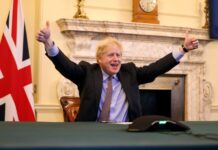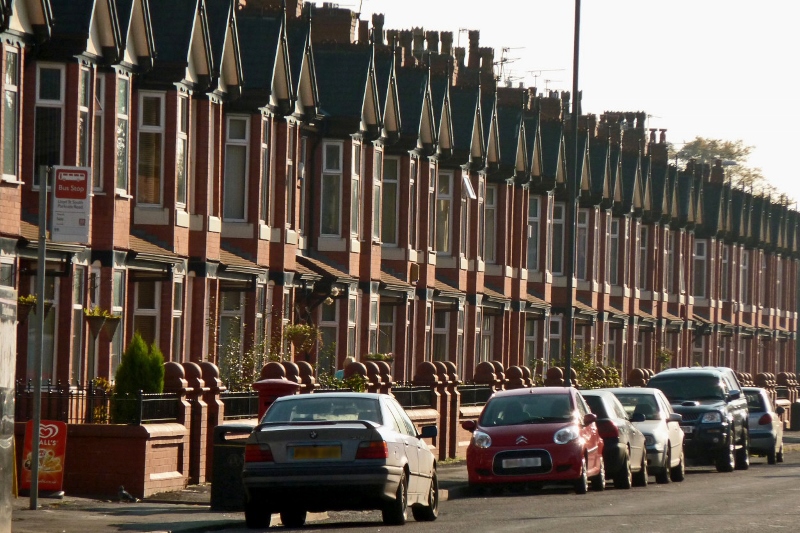
The UK will leave the European Union and David Cameron will resign as Prime Minister.
This is the breaking news that Brits woke up to on Friday 24th June as the face of the EU changed forever.
After months of debate, threats from both ends of the political spectrum and some often misleading propaganda, the British public voted in favour of exiting the 28-nation bloc by 17,410,242 (51.9 per cent) to 16,141,241 (48.1 per cent).
It was the highest turnout for a vote in the country for almost 25 years, as 72.2 per cent of the nation’s eligible voters had their say on whether to continue the EU membership. In comparison, last year’s general election witnessed just a 66.1 per cent turnout.
Cameron resigns
The announcement at around 8.30am outside the steps of 10 Downing Street came as little surprise to many in the political world as David Cameron announced his intentions to resign as Prime Minister.
Describing his patriotism for the country, as well as his desire to see the Leave campaign ultimately succeed, he said: “I will do everything I can as Prime Minister to steady the ship over the coming weeks and months but I do not think it would be right for me to try to be the captain that steers our country to its next destination.

“This is not a decision I’ve taken lightly but I do believe it’s in the national interest to have a period of stability and then the new leadership required.
“There is no need for a precise timetable today but in my view we should aim to have a new Prime Minister in place by the start of the Conservative Party conference in October.”
Cameron will continue in his post momentarily but also confirmed that he believes a new leader in the UK should be in place by October this year.
He added: “I said before that Britain can survive outside the European Union and indeed that we could find a way.
“Now the decision has been made to leave, we need to find the best way and I will do everything I can to help. I love this country and I feel honoured to have served it and I will do everything I can in future to help this great country succeed.”
Pound slumps in global markets
The pound fell more than 10 per cent against the dollar following the confirmation of the victorious ‘Leave’ vote – the biggest one-day fall in history.
Not since 1985 have the pound-to-dollar levels been so low, with Chancellor George Osborne describing the situation as a ‘DIY recession’.
It had earlier been acknowledged by some in the ‘Leave camp’ that a ‘blip’ might be initially seen in the currency markets yet such a fall still came as a surprise.

The dramatic result also reportedly wiped an estimated £122 billion of the value of the FTSE 100 within minutes.
Bank governor Mark Carney said in a statement on behalf of the Bank of England: “Inevitably, there will be a period of uncertainty and adjustment following this result.
“There will be no initial change in the way our people can travel, in the way our goods can move or the way our services can be sold.
“And it will take some time for the United Kingdom to establish new relationships with Europe and the rest of the world.
“Some market and economic volatility can be expected as this process unfolds.”
Europe’s response
There is no denying that the UK’s eventual exit from the EU is the biggest crisis the organisation has had to face in its 59-year history.
Will other nations now hold their own referendums and what will the UK’s working relationship be like with the remaining members? These are the questions we will have to wait to find out the answers for.

In the meantime, reaction from leaders around the world remains mixed. Angela Merkel’s close ally, Manfred Weber – a senior German conservative MEP – said ‘no special treatment’ can be given to the UK.
He said in four tweets: “We respect and regret the decision of the British voters. It causes major damage to both sides.
“This was a British vote, not a European vote. Co-operation within Europe is a question of self-assertion of the continent.
“We want a better and smarter Europe. We have to convince the people and bring Europe back to them.
“Exit negotiations should be concluded within two years at max. There cannot be any special treatment. Leave means leave.”
Elsewhere, the Dutch anti-immigration leader, Geert Wilders, saw the UK’s vote as a catalyst for other nations to hold their own referendums.
“We want be in charge of our own country, our own money, our own borders, and our own immigration policy,” he said in a statement.
Polls and opinions in Sweden, France and Italy also suggest other nations are worried about a weakened EU due to the Brexit.
How the UK voted
52 per cent of the country voted for an EU exit.
In Scotland, all 32 local authority areas voted in favour of remaining in the EU, with 62 per cent opting against leaving.
Questions will now be raised as to whether another Scottish Independence referendum is needed as the voice of the people north of the border seemingly went unheard.
55 per cent of people in Northern Ireland also voted to remain members of the EU, whilst the Leave voters were victorious in Wales with 51.9 per cent.
When looking at the different regions in England, a clear north-south divide can be seen.
In Yorkshire, the North East, North West, West Midlands and East Midlands, the ‘Leave’ campaign triumphed. Meanwhile, in the metropolitan capital of London, 59.9 per cent voted ‘Remain’.
What happens next?
The UK, in many ways, is heading into unchartered territory.
Only Greenland has ever left the EU previously – in 1985 – yet the UK’s power and presence in the political union is much more substantial.
Firstly, the decision of when to trigger Article 50 of the Treaty of Lisbon has to be made. In Lehman’s terms this means the beginning of the formal and legal process of the UK leaving the EU.
There is a two-year deadline in place meaning the Prime Minister of the day, whoever that may be, has limited time to negotiate new trade deals with the EU before the nation ceases to remain a member.
The UK may revert back to trading with the EU under World Trade Organisation rules, according to some Remain campaigners, which would result in exporters being hit with import taxes and tariffs.













